Get Septic Tank Pumping in Denver, CO
Septic tank pumping services help Denver-area property owners prevent backups, odors, and system failures by removing accumulated sludge and maintaining proper tank function.
Property owners in Denver, CO, who rely on septic systems for their homes or businesses often find that regular septic tank pumping is an essential part of maintaining proper functionality and avoiding costly repairs. Whether preparing for seasonal changes, managing increased usage, or simply ensuring the system remains in good condition, connecting with experienced local contractors can help facilitate a smooth and effective service process. Exploring options for septic tank pumping allows property owners to compare available services and find providers suited to their specific needs.
By considering local service providers for septic tank pumping, property owners can access the practical expertise needed to keep their systems operating efficiently. Proper maintenance can prevent potential issues such as backups or system failures, making it a sensible step in overall property management. Continuing to read can help identify trusted contractors in the Denver area who are equipped to handle septic system needs with professionalism and reliability.
- Septic Tank Pumping - needed when a septic system in neighborhoods like Highlands Ranch or Aurora shows signs of backup or slow drainage.
- Septic Tank Inspection - essential for homeowners preparing for property transfers or routine maintenance in areas such as Lakewood or Centennial.
- Septic System Cleaning - required when accumulated sludge or debris causes odors or reduces system efficiency in suburban communities around Denver.
- Septic Tank Maintenance - necessary to prevent system failures after heavy rains or if the system hasn't been serviced in several years near Boulder or Littleton.
- Septic System Repairs - needed when leaks, cracks, or other damage occur in septic tanks in neighborhoods like Englewood or Westminster.
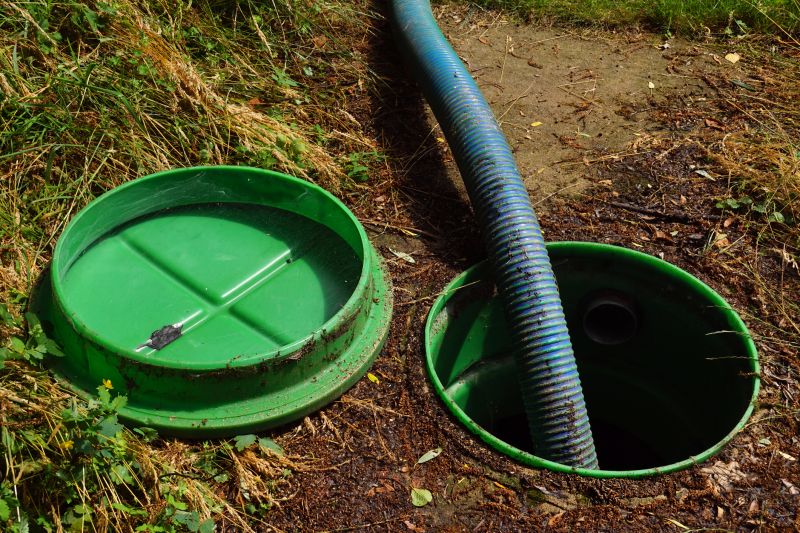
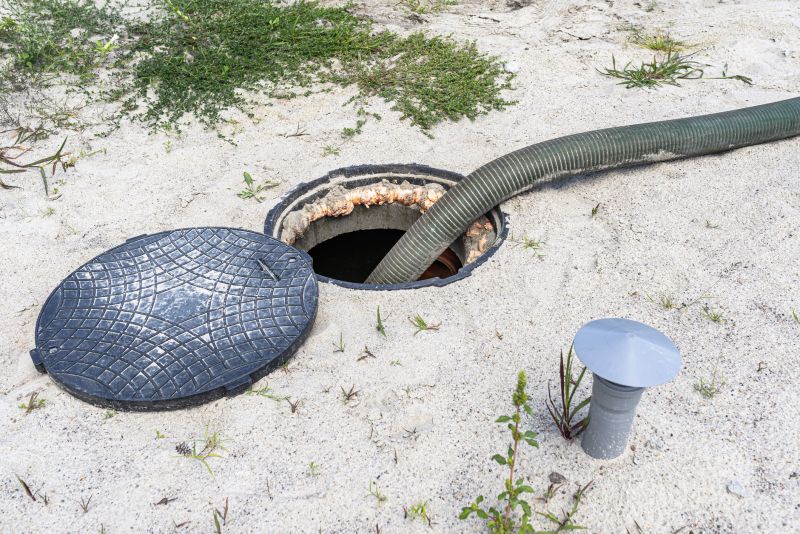
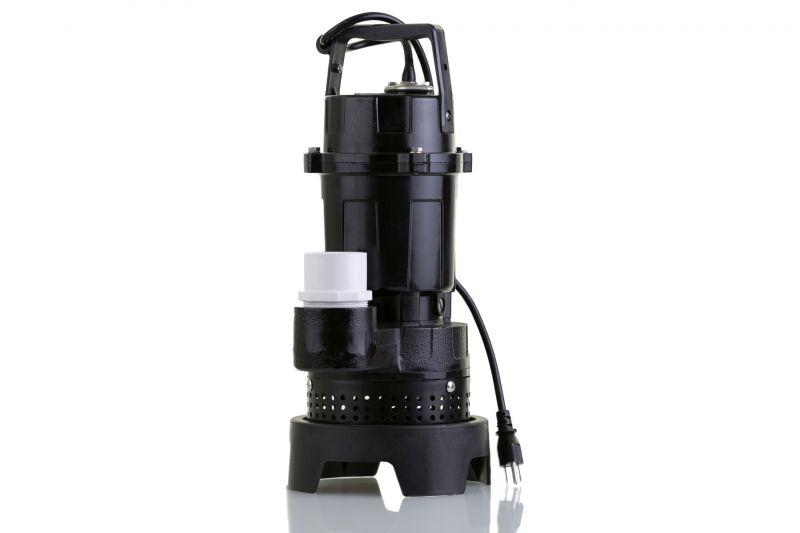
Septic tank pumping is a routine service that involves removing accumulated solids and liquids from a home's septic tank. Over time, sludge and scum build up inside the tank, reducing its capacity and effectiveness. During a pumping service, a professional contractor will access the tank, typically through a manhole, and carefully extract the contents using specialized equipment. Regular pumping helps maintain the proper functioning of the septic system, preventing backups and ensuring it continues to operate smoothly.
This service helps address common problems such as foul odors, slow drains, and sewage backups in the home. When a septic tank becomes too full, waste can overflow into the drain field or backup into the house plumbing, leading to costly repairs and sanitation issues. Pumping the tank at appropriate intervals reduces the risk of these problems, extending the lifespan of the septic system and maintaining a healthy, odor-free environment on the property.
Septic tank pumping is most often needed for residential properties that rely on septic systems rather than municipal sewer lines. This includes single-family homes, rural properties, and some small businesses in areas without centralized sewer service. Properties with larger families or frequent use may require more frequent pumping to keep the system in good condition. It is also recommended for properties where the septic system has not been serviced in several years or shows signs of trouble, such as slow drains or persistent odors.
Homeowners should consider septic tank pumping services when experiencing plumbing issues or as part of routine maintenance. If the septic tank is approaching its maximum capacity, or if it's been several years since the last pump-out, scheduling a service can prevent more serious problems down the line. Local contractors can assess the condition of the tank, perform the necessary pumping, and provide guidance on how often future service might be needed based on the property’s usage.
The overview below groups typical Septic Tank Pumping projects into broad ranges so you can see how smaller, mid-sized, and larger jobs often compare in Denver, CO.
In many markets, a large share of routine jobs stays in the lower and middle ranges, while only a smaller percentage of projects moves into the highest bands when the work is more complex or site conditions are harder than average.
Routine Pumping - typical costs for regular septic tank pumping generally range from $250-$600 for many smaller jobs in Denver and nearby areas. Many routine maintenance projects fall within this middle range, depending on tank size and accessibility.
Emergency or Unscheduled Services - urgent pumping or repairs can cost between $600-$1,200, especially if access is difficult or additional cleanup is needed. Fewer projects fall into this higher tier, but costs can vary based on the situation.
Septic Tank Inspection - inspections typically cost between $100-$300, with many local contractors offering these services as part of routine maintenance. Larger or more detailed assessments may push costs higher but are less common.
Full System Replacement - replacing a septic system can range from $3,000-$7,000 or more, depending on the size and complexity of the installation. Larger, more complex projects can reach $10,000+ but are relatively infrequent compared to standard pumping jobs.
Actual totals will depend on details like access to the work area, the scope of the project, and the materials selected, so use these as general starting points rather than exact figures.
Drain Field Installation - this project involves designing and installing drain fields, requiring expertise in soil assessment and underground piping similar to septic tank pumping.
Septic System Inspection - inspecting septic systems for proper function and identifying issues involves similar planning and understanding of underground tank components as septic pumping.
Septic Tank Replacement - replacing an old or damaged septic tank requires careful excavation and coordination, paralleling the skills used in septic tank pumping services.
Septic System Repair - repairing components like pipes or valves involves troubleshooting and access techniques comparable to those used during septic tank maintenance.
Wastewater System Maintenance - general maintenance of wastewater systems involves cleaning, inspection, and troubleshooting skills that align with septic tank pumping processes.
Underground Utility Locating - locating underground pipes and tanks requires specialized tools and planning similar to accessing septic tanks for pumping or repairs.
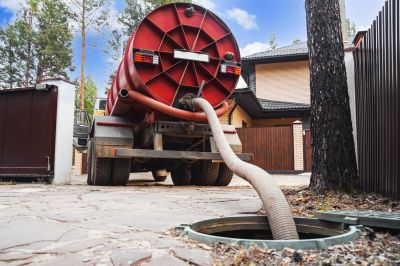
When comparing septic tank pumping service providers in Denver, CO, it’s important to consider their experience with similar projects. Homeowners should look for local contractors who have a proven track record of handling septic systems comparable to their own. This can help ensure that the service provider understands the specific requirements and challenges associated with different types of septic tanks, leading to a more efficient and effective pumping process. Asking for information about how long a contractor has been working in the area and their familiarity with local soil conditions can provide insight into their practical experience.
Clear, written expectations are essential when choosing a septic tank pumping service. Homeowners should seek providers who can offer detailed descriptions of the scope of work, what the process involves, and any preparations needed before the service. Having this information in writing helps prevent misunderstandings and ensures that everyone is on the same page regarding what will be done. It’s also helpful to inquire about the procedures the contractor follows to ensure the job is completed thoroughly and correctly, giving peace of mind that the project will meet standard practices.
Reputable references and good communication are key factors in selecting a reliable service provider. Homeowners should ask potential contractors for references from previous clients with similar septic systems. This can provide insights into the quality of work and customer satisfaction. Additionally, a contractor who communicates clearly and promptly-whether through phone, email, or other means-can make the process smoother and more transparent. It’s important to choose local service providers who are known for their professionalism and responsiveness, as these qualities often reflect their overall approach to customer service and project execution.
Property owners in Denver, CO use Septic Tank Pumping services for practical projects around their homes and businesses. This guide focuses on everyday jobs and straightforward project options.
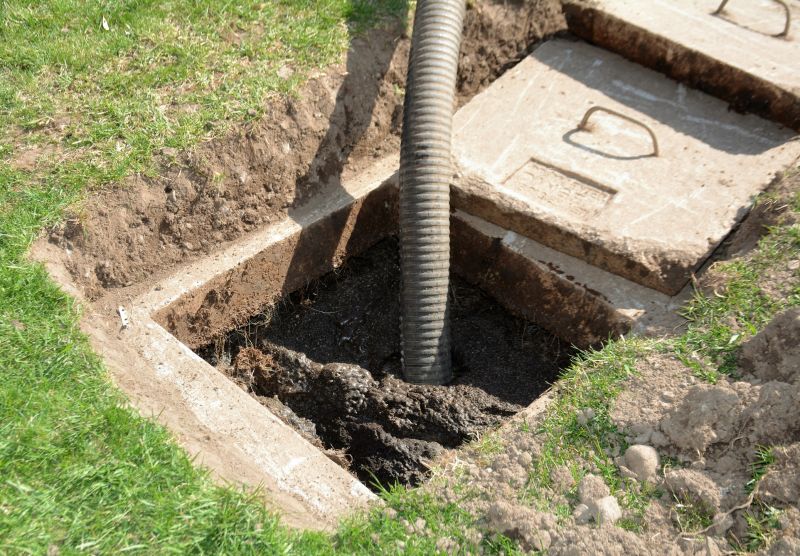
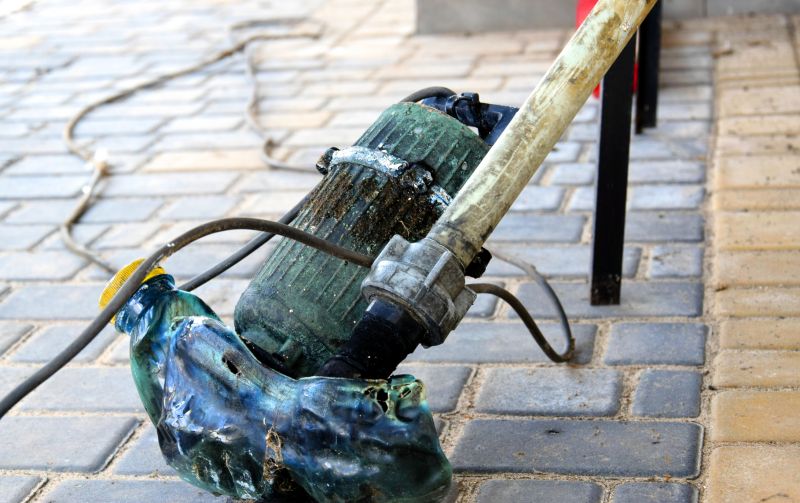
Septic tank pumping is a common service sought by property owners in Denver, CO, especially for those with homes that rely on a septic system rather than municipal sewer lines. Regular pumping helps prevent backups and overflows, which can cause unpleasant odors and costly repairs. Property owners might look for local contractors when they notice slow drains, gurgling sounds in plumbing, or after a certain number of years since the last maintenance. These routine projects are essential for keeping septic systems functioning properly and avoiding emergency situations that disrupt daily life.
In addition to routine maintenance, property owners often seek septic tank pumping services when preparing for seasonal changes or property inspections. For example, those planning to sell a home or conduct inspections may need to ensure the septic system is in good condition. Heavy rainfall or snowmelt common to Denver can also lead to groundwater issues, prompting property owners to contact local service providers for pumping and inspection. Local contractors are equipped to handle these everyday situations, helping residents maintain a healthy and functional septic system year-round.
What is septic tank pumping? Septic tank pumping involves removing accumulated solids and sludge from a septic tank to ensure proper functioning and prevent backups.
How often should septic tanks be pumped? Typically, septic tanks require pumping every 3 to 5 years, depending on household size and usage, but local contractors can provide specific recommendations.
What are signs that septic tank pumping is needed? Signs include slow drains, foul odors, pooling water near the tank or drain field, and backups in plumbing fixtures.
What types of septic tanks do local service providers handle? Local contractors commonly service various septic tank types, including traditional gravity, pressure distribution, and mound systems.
Why should I hire a professional for septic tank pumping? Professionals have the expertise and equipment to safely and effectively pump and inspect septic tanks, helping prevent system failures.
Septic Tank Maintenance - Regular pumping helps property owners prevent backups and costly repairs by keeping the system functioning smoothly.
Property Renovations - When planning renovations or expansions, property owners can ensure the septic system is prepared to handle increased usage.
New Construction Projects - Builders and developers can coordinate with local contractors to install or service septic tanks for new properties.
Seasonal Drainage Checks - Property owners can schedule inspections before heavy rainfall or winter to maintain proper drainage and system health.

If you are thinking about Septic Tank Pumping for a property in Denver, CO, this guide is meant to help you understand the work, the typical project types, and how different options might fit your plans.
When you are ready, you can use the quote form on this page to share a few details about your project. From there, local pros can review the basics and respond with options that match what you have in mind.
